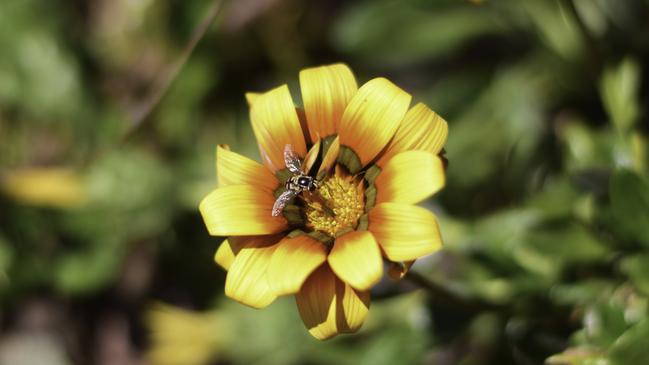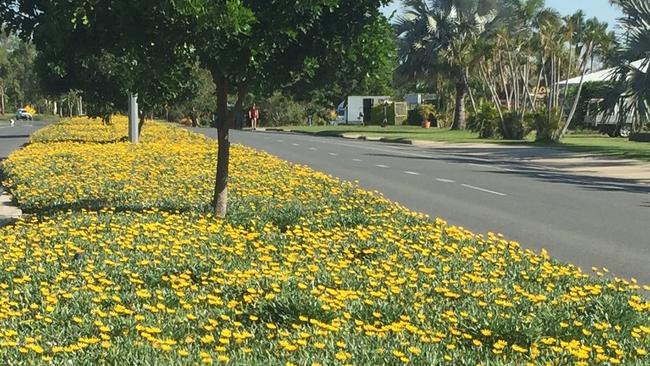Why Australians shouldn’t buy this popular $6 Bunnings item
The hardware store has come under fire for selling an item experts say needs to be banned as it’s a “huge problem” for the country.
Outdoors
Don't miss out on the headlines from Outdoors. Followed categories will be added to My News.
Experts are warning Australians not to buy a “highly invasive” weed sold at Bunnings – labelling it a “ticking-time bomb” for Australia’s bushland and ecosystem.
Nurseries across the country, including at the popular hardware store, are selling plants and shrubs that agriculturalists warn are causing “massive problems” for Australia’s bushland and ecosystem.
The majority of Australia’s weeds have escaped from gardens, resulting in at least four plant extinctions and costing the agricultural industry $4.3bn to manage each year, according to the Invasive Species Council.

Jack Gough, advocacy director at the Invasive Species Council, said most Australians didn’t realise that often their gardens or fish ponds were the source of highly invasive weeds that were yet to reach their full potential to spread.
While industry bodies are working tirelessly to protect native bushland and Australia’s biodiversity, Mr Gough said many of the 30,000 plants sold in nurseries across the country were ending up in local bushland.
“It’s making a mockery of all the work that gets done by landcare groups, by bushcare groups, by local councils who spend billions and billions of dollars every year trying to deal with weeds around the country,” he said.
“At the same time as they are working hard to remove these problem species choking out the landscape, there are other species being sold that become the next problem.”
With three-quarters of all listed weeds in Australia being escaped garden plants, Mr Gough said legally sold plants like English ivy and gazanias were “suffocating” local bushland.
“They tend to take over areas, they choke them out and they suppress the native plants. Where we’ve got degraded areas, they can stop those areas from regenerating and recovering,” he said.
“Every year the problem gets worse.”

English ivy and gazania are both listed as “highly invasive” on the Victorian government’s advisory list of environmental weeds, yet both the non-native plants are readily available at nurseries across the country.
Described as “hardy and tough”, gazania seeds are sold for $5.50 at Bunnings.
An Agriculture Victoria spokesperson said gazania is one of many invasive species that were introduced as garden plants.
“While it is not practical to declare all invasive plant species as noxious weeds, Victorian nurseries and plant stockists are encouraged to play their part in protecting the state’s biosecurity by not planting, selling or trading plants known to be highly invasive,” they said.


Bunnings merchandise director Cam Rist said “like many nurseries and retailers”, the hardware giant sold a “wide range of locally sourced plants across our stores”.
“We work hard to create an assortment that caters to customer preferences and demand,” he said.
“As always, we closely follow all relevant local biosecurity regulations and the advice of regulators about the plants we sell.”
Mr Gough said the selling of invasive weeds was not just a “Bunnings problem” but an “industry-wide problem”.

While Nursery and Garden Industry Australia has set up Grow Me Instead, a database that informs gardeners and nurseries on what plants are safe to buy and sell, Mr Gough said governments had been “conned” in believing self-regulation by the industry was the answer.
“It’s completely unreasonable to expect everyday Australian gardeners to get down and read all the fine print to know where and when they should be planting something,” he said.
“This is something that should be driven by government, having clear regulation of the industry, so that Australian gardeners know when they turn up at their local Bunnings or their local nursery … they’re not going to end up turning their garden into a ticking time bomb for the local bushland.”

Mr Gough welcomed Environment and Water Minister Tanya Plibersek’s “leadership” in convincing all state and territory environment ministers to agree to develop a national plan to tackle the growing problem.
“We’re very hopeful that this will be the first step towards effective regulation,” he said.
“There are thousands of safe plants available, which will allow people to have amazing, diverse gardens.
“The gardening and nursery industry will still prosper without causing new weeds to spread around this country, but to achieve that, we need regulation from the top.”
— With NCA Newswire
Originally published as Why Australians shouldn’t buy this popular $6 Bunnings item




